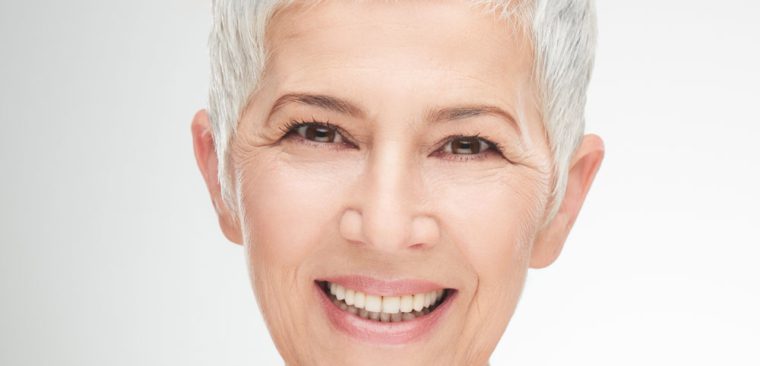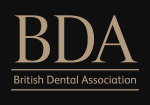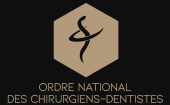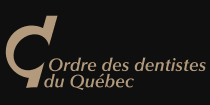
Treatments
Extractions and Wisdom Teeth Extractions
A dental extraction is the removal of a tooth.

About This Treatment
An extraction may become necessary for both adults and children, for a number of reasons.
The most common reasons are:.
- Heavily decayed, chipped or even broken teeth gone past the point of repair
- Presence of bacteria extended too deep into the nerve pulp of the tooth, causing cavities, or infection. Some tooth infections can become so severe that antibiotics or a root canal will not help. An extraction will keep the infection from spreading.
- Advanced gum disease, periodontal disease that can only be solved with tooth extraction to prevent the spread.
- Crowding of teeth in the mouth. Some teeth may need to be removed in order to prepare for braces or alignment treatment.
- Wisdom teeth that need to be removed.
- Having extra teeth or not losing a baby tooth into adulthood.
- A severe toothache or swelling around the tooth.
What happens during a dental extraction?
The area around the tooth will receive local anesthetic to numb the surrounding area and the tooth to be extracted. If more than one tooth needs to be extracted, then a stronger anesthetic may be needed. Using forceps, we grasp the tooth and gently rock it back and forth to loosen the root from the bone and ligaments. When the tooth is loose, we will use the forceps to pick-up the tooth out of the gum.
Wisdom teeth removal
- Wisdom tooth extraction: If you do not have enough room in your mouth for your third molars to fully erupt, a number of problems can happen. Impacted wisdom teeth should be removed before their root structure is fully developed. In some patients it is as early as 12 or 13, and in others it may not be until the early twenties. Problems tend to occur with increasing frequency after the age of 30. Some of the possible problems related to not removing your wisdom teeth include:
- Infection: is the most frequent clinical problem seen with wisdom teeth. This infection is called pericoronitis which is a localized gum infection. Without enough room for total eruption, the gum tissue around the wisdom tooth can become irritated and infected, resulting in recurrent pain, swelling, and problems with chewing and/or swallowing.
- Cyst formation: Non-infectious diseases may also arise in association with an impacted wisdom tooth. Cysts are fluid-filled “balloons” inside the jaw bone that develop as a result of impacted teeth and slowly expand destroying adjacent jaw bone and occasionally teeth. They can be very difficult to treat if your wisdom teeth are not removed in your teenage years. Although rare, tumors can be associated with the delayed removal of wisdom teeth.
- Damage to adjacent teeth: If there is inadequate room to clean around the wisdom tooth, the tooth directly in front, the second molar, can be adversely affected resulting in gum disease, bone loss around the tooth, and/or decay.
Possible crowding: Impacted wisdom teeth may contribute to crowding of your teeth. This is most noticeable with the front teeth, primarily the lower front teeth and is most commonly seen after a patient has had braces. There are a number of factors that cause teeth to crowd after braces or in early adulthood. Retained, impacted wisdom teeth may be a contributing factor. Unless you have an active problem when you see the oral surgeon, the reason for removal is primarily to prevent long-term damage to your teeth, gums and jaw bone
Dr. Alexandra is the best dentist you can find in London! I contacted her for an emergency and I got an appointment within 1 hour! She is not only an amazing doctor but also a lovely person. I would definitely recommend her.
- What if I don’t have my wisdom teeth removed as a teenager or young adult?
As wisdom teeth develop their roots become longer and your jaw bone more dense.
When it becomes necessary to remove your wisdom teeth and you are in your thirties, forties or beyond, the post-operative recovery can be prolonged and there is a higher risk of complications.
Healing may be slower and the chance of infection can be increased.
If your wisdom teeth are fully impacted, it may be advisable to wait until a localized problem occurs such as cyst formation or localized gum and bone loss.
- What to expect during wisdom tooth removal?
Removing a wisdom tooth is performed under local anesthesia.
Surgical risks (i.e., sensory nerve damage, sinus complications), will be discussed with you before the procedure is performed. Once the teeth are removed, the gum is sutured. To help control bleeding we will have you bite down on the gauze. You will rest under our supervision in the office until you are ready to be taken home. Upon discharge your postoperative kit will include postoperative instructions, a prescription for pain medication, antibiotics, and a follow-up appointment in one week for suture removal
- What to expect after wisdom tooth removal?
On the first day after surgery, you may experience some minor bleeding and pain. You should cover your pillowcase to avoid it getting stained.
Each individual’s reaction to surgery varies, and the sensation of pain can range from mild discomfort to severe pain. A variable amount of swelling can be expected following the surgery. This swelling usually peaks on the second day and should begin resolving on the third day.
You can limit the amount of swelling by using ice for the entire first day. The more ice you use the first day, the less swelling you are likely to have on the second day.
On the third day, you will notice that your jaw muscles are stiff, and it is difficult to open your mouth normally. You can apply moist heat to your face on the second and third day allowing your muscles to relax more and open wider. Most of the time you will want to limit your activities for a few days. We ask that you follow your post-operative instructions closely.
Please allow time for your body to begin healing before resuming an active social, academic, or athletic schedule. Most patients feel like they are on their way to recovery in 3 to 5 days.
- What can be the complications of wisdom tooth removal?
As with any medical procedure, there can be complications or an unanticipated result. Some complications that patients undergoing Wisdom Tooth Extraction may experience include:
1)Damage to the sensory nerve of the lower jaw that supplies sensation to the lips, chin and tongue. This nerve is frequently very close to the roots of the lower wisdom teeth. Having these teeth out between the ages of 12 and 18 usually provides shorter roots so that the nerve is not so close to the roots of these teeth. Occasionally, when the teeth are removed, and especially in older patients, the nerve can become injured. When local anesthesia wears off, you may experience a tingling or numbing sensation in the lower lip, chin, or tongue. Should this occur, it is usually temporary and will resolve gradually over a period of weeks or months. On rare occasions it can result in a permanent alteration of sensation similar to having local anesthesia. We feel that you should be aware of this possibility before consenting to surgery.
2) sinus communication: This is a complication that can happen when the upper wisdom teeth are being extracted. The upper wisdom teeth are situated close to your sinuses, and their removal can result in an opening between your mouth and the sinus. Once again, if the teeth are removed at an early age, the root formation is minimal, and this complication is very unlikely. However, if it does occur, it will usually close spontaneously, but we may give you special instructions to follow, such as avoid blowing your nose for two or three days following the surgery. You can wipe your nose, but don’t blow your nose. If you have to sneeze, you should sneeze with an open mouth into a tissue. Pressure should not be created in the sinus area, which may dislodge the healing blood clot. If you sense this condition occurring after the surgery, please contact the office. An additional procedure may be necessary to close the opening.
3) Infection: Occasionally, post-operative infections occur. This usually requires an office visit and clinical examination. Many times, just placing the patient on an antibiotic for one week will take care of the infection. If it persists, the area will have to be drained and cleaned. Other temporary problems that may be experienced in the post-operative period include stiffness of the jaws, chafing around the corners of your lips, facial bruising, and blood oozing from the extraction sites.
4) Dry sockets:Dry sockets continue to be the most common problem experienced after wisdom tooth extraction. They arise when the blood clot that forms over the extraction site cannot form. This seems to occur with greater frequency in people who smoke or are taking birth control pills. While both jaws can be affected, they usually occur in the lower jaw on the third to fifth day. They cause a deep, dull, continuous aching on the affected side(s). Patients may first notice the pain starting in the ear radiating down towards the chin.
- What to do when having a dry socket?
Changing and adjusting your pain medicine is what will happen first. If the pain does not get better, pLacing a medicated dressing in the empty socket can help in decreasing the pain and protect the socket from food. The effectiveness in alleviating the pain lasts 24-48 hours and may require changes every 2 days for 5 to 7 days. Dressings are generally removed when you have been free of pain for 2 to 3 days. The dressing does not aid in the healing; it is only used for pain control.
- How to prevent a dry socket?
It is imperative to keep the surgical site clean after the extraction to ensure the healing can take place; and that is having a blood clot forming and covering the site where the tooth was previously. To do so, it is important to be mindful of:
- Food and drink intake: During recovery patients should focus on consuming soft foods, and avoiding food and drinks that contain sugar, caffeine, alcohol and carbonation, for at least one week. Avoid drinking from a straw as the suction could disrupt the blood clot
- Tobacco: Smoking and chewing tobacco can affect healing and have painful consequences, as it can spread bacteria to the site. To ensure a speedy and hygienic recovery, avoid all tobacco use until the site is healed
- Hygiene: Keeping the site clean can ensure a smooth recovery for patients. Wait at least x days before brushing the area, and be sure to rinse twice daily with an antibacterial mouth rinse starting only 2 days after the edtraction
- Rest: Avoiding physical activity, exercising, and excessive talking or movement of the face, to allow yourself time to recuperate and heal post surgery.












